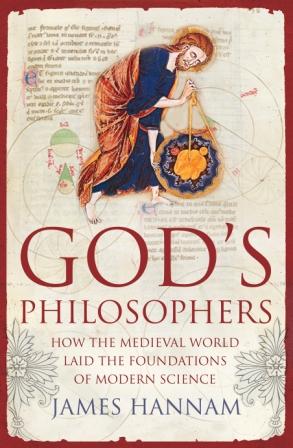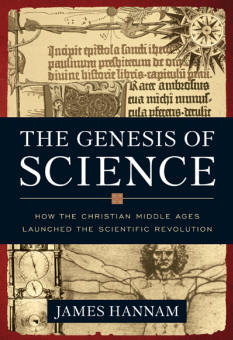
|
If you have enjoyed Bede's Library, you can order my book, The Genesis of Science: How the Christian Middle Ages Launched the Scientific Revolution (US) from Amazon.com or God's Philosophers: How the Medieval World Laid the Foundations of Modern Science (UK) from Amazon.co.uk. |
|
For my latest thoughts on science, politics, religion and history, read Quodlibeta
|
The Closing of the Western Mind by Charles Freeman
![]()
Charles Freeman and I have corresponded about this review. You can read our emails in full here.
Charles Freeman is a freelance writer of popular history. In 1996, Oxford University Press published his Egypt, Greece and Rome. I bought this when it came out (there is now a second edition) and thoroughly recommend it as the best introduction to the ancient world in print. Reading it makes two things clear – that Freeman is a writer of exceptional talent and that he loves the ancient world with a passion. I share his passion and if I could go through life again, I’d want to be a classicist. So, if you don’t know your Attila from your Alexander or you think Tiglath Pilesar is a brand of lager, and you are worried this makes you seem like an uneducated ignoramus (which, incidentally, it does) then, Egypt, Greece and Rome is the book for you.
Freeman’s next book was the now notorious The Closing of the Western Mind (2002). It went down like a lead balloon among people who know something about late antiquity, but was rather popular with those who don’t. To his credit, Freeman wrote a rejoinder to his critics on Amazon.com which is humble, if unrepentant. The Closing of the Western Mind is also extremely well written and thoroughly enjoyable but its central thesis is completely wrong.
Here’s the story in brief: ancient Greeks were rational and tolerant, not given to pointless ethical strictures or getting worked up about dogma. Then, in the fourth century AD, the classical world was taken over by crazy Christians who rioted about stuff like whether Jesus was man or god, oppressed women and generally made life difficult for scientists. As a result, human development stopped and Christianity held back progress for a thousand years. To be fair to Freeman, a lot of people actually believe this and it passed as conventional wisdom among historians until about a century ago. But, we now know that it is wrong in general and in every detail. Freeman, if he had paid attention to a fraction of the books in his bibliography, should have realised this.
In 1949, E.R. Dodds gave a series of lectures at the University of Berkeley, California that have formed the basis of our understanding of Greek culture ever since. Essentially, Dodds marked the move away from an elitist reading of classical texts as somehow representative of what ordinary people thought to the realisation that hardly anyone would have come across the thought of Aristotle or Euclid. To understand what ancient Greece was really like, we have to turn to other evidence such as inscriptions, archaeology and non-elite texts like Menander’s comedy. Dodds called the book that resulted from his lectures The Greeks and the Irrational and it totally demolished the idea that the ancient world was a hive of rational philosophers. Christianity could not have overturned the rule of reason in the Greek world because the Greek world was not reasonable. Sure, among a tiny literate elite the works of Lucretius and Aristotle were popular, but even most of their readers made their sacrifices to the household gods and hoped for healing in the Temple of Asclepius. When plague struck Rome in the reign of Antonius Pius the pagan faithful did exactly what medieval Christians would have done – went on processions to assuage the gods.
Of course, very little of this pagan irrationality has been passed down to us. The fact is that early Christians were not very interested in the details of pagan religion and preserved hardly any of its literature. They thought that the Greek myths were picturesque stories and we inherited that belief. Thus, we have now completely lost the ability to see them as part of a living religious tradition. However, Christians were very interested in Greek philosophy, science and medicine. This is what they preserved by the laborious process of hand copying. They handed down to us Euclid, Ptolemy, Plato, Aristotle, Galen and Simplicius. Edward Grant calculated that an incredible 15,000 pages of Greek commentary on Aristotle dating from the 2nd to 6th centuries AD have come down to us. Every single one of those pages had to be copied and recopied by Christian scholars. So, the crowning irony of all this is that Freeman’s slanted view of the ancient Greeks as a supremely rational lot is almost entirely due to the activities of the very Christians he blames for defeating reason.
The destruction of pagan religion, then, had nothing to do with the elite activity of pagan philosophy. The closest link is in the work of the neo-Platonists. This was the dominant philosophy among pagan thinkers from the mid-third-century onwards (although it is quite hard to tell because again, we see things through a later Christian lens). Freeman’s not-very-original idea is that Christians picked up the mystical and supernatural elements of neo-Platonism and abandoned the more rational aspects of Greek philosophy. Well, Christian theology certainly absorbed aspects of neo-Platonism because theology is a study of the supernatural. But Freeman mistakes the history of theology for the history of everything else. In one sense, this is forgivable because many of our sources for the period are histories of the Church. Modern scholars must pick through these to try to work out what was really going on. Freeman just takes them all at face value and seems to think that the clerical writers’ priorities reflect reality. He believes this even though he has read Ammianus Marcellinus, a secular historian of the period, who finds Christian doctrinal disputes extremely boring and hardly mentions them.
That said, Freeman’s exposition of the arguments about Arianism and the Trinity are probably the most lucid ever written. Gibbon deliberately made the whole thing even more obscure than it was, to emphasise his point that the whole dispute was trivial. Freeman instead carefully explains what was at issue and why it was at issue. He also resists the temptation to laud Pelagius (usually applauded purely because he was Augustine’s foe), painting him as the uncompromising fanatic that he was. Compare that with the favourable mention Pelagius gets in the recent film King Arthur. A minor quibble is that Freeman writes as a Protestant-raised humanist. This means that he can simultaneously attack the Trinitarians for not basing their theology on a clear reading of the Bible, while elsewhere complaining about biblical literalists.
So when did the western mind close? Well, the downfall of classical civilisation in the West was due to wave after wave of barbarian invasions that shut down intellectual life for four centuries or so. We have Christianity almost entirely to thank for its reappearance. In the East, minds remained open or closed depending on prevailing conditions. There was no intellectual stagnation in the fourth or fifth centuries about which Freeman bases his book. There was in the sixth and eighth centuries, due largely to the belligerent policies of Justinian and the Islamic invasion. Many Greek Christians found themselves ruled by the Caliphs and kick-started Arabic science and maths. A surprising number of early Arabic science writers were Christians not Moslems.
So, The Closing of the Western Mind explains something that never happened and manages to get the explanation wrong. I’m going to indulge in a little armchair psychology to try and explain how Freeman managed to make the catastrophic mistake of writing fiction and calling it history. As mentioned at the start of this review, Freeman and I both share a passion for the classical world. I get the impression that Freeman sincerely regrets its passing and cast around for someone to blame. Like many other humanists, he settled on the Christians and set out to write the indictment. From there it all started to go wrong. Freeman put the hypothesis before the research and ended up with a brilliantly written piece of anti-Christian polemic.
A classics don once said to me of Tacitus’s histories, “enjoy it, but don’t believe it.” The same applies to The Closing of the Western Mind.
![]()

